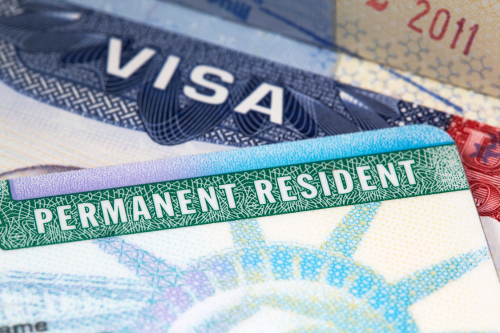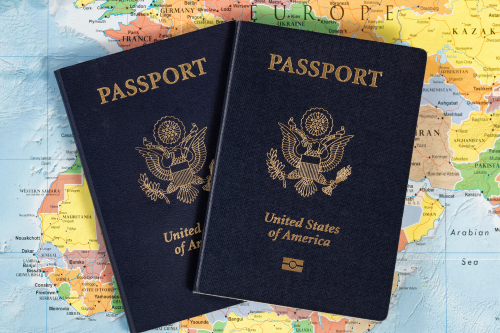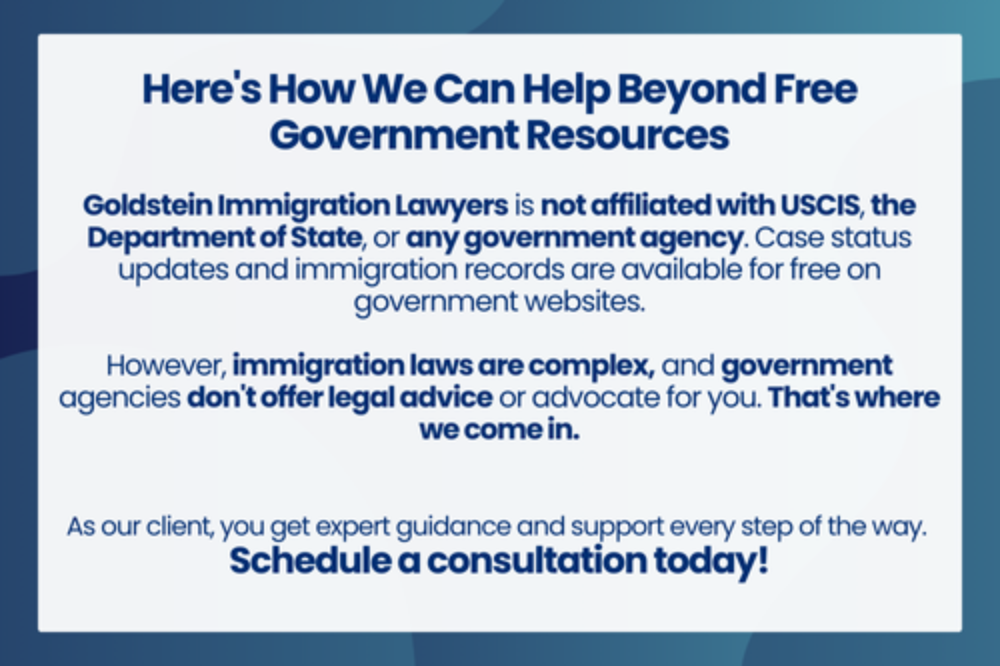Immigration rules can be confusing, and immigration news about policy updates is changing, especially for permanent residency holders who travel. Airtalk recently talked to Josh Goldstein. He is an immigration lawyer with more than 20 years of experience.
He explained the permanent resident travel risks and how more people are feeling uncertain about leaving and returning to the U.S. But what if you need to travel for an emergency? While Goldstein focused on green card holder travel restrictions, knowing what to do in urgent situations is also important.
Nobody knows when a family crisis or medical emergency could happen. Find out everything you need to know to navigate the risks of traveling with a green card right here!
Can Permanent Residency Holders Be Deported?
Permanent residents can, in some cases, face deportation—especially if they have a criminal record. But it’s not just extreme cases that raise concerns.
People with past criminal convictions, immigration fraud history, or unresolved legal issues should be cautious about traveling with a permanent resident card. Those in removal proceedings may also face extra scrutiny when they try to re-enter the country. Goldstein warned that traveling could bring them to the attention of law enforcement, potentially triggering deportation proceedings.
“What's different right now is that permanent residents, green card holders, even U.S. citizens are afraid to travel internationally,” Goldstein explained. Text here
A New Climate of Fear
Many permanent residency holders feel a growing fear. This is true even for those with no criminal history. More people are asking Goldstein Immigration Lawyers for help because they’re scared of what could happen if they leave the U.S.
Joshua Goldstein told the Washington Post about a mother who could travel but was too afraid to go. The mother wanted to go with her daughter on a school trip to Italy. However, she was worried about problems when they returned.
“There’s a climate of fear, and I’m having back-to-back consultations with people who are terrified to travel,” said Goldstein. “That’s something new, and it’s deeply disturbing.”
Should Green Card Holders Travel Right Now?
Goldstein takes a case-by-case approach when advising clients on travel. His process includes:
- Screening for risk factors – If someone is in deportation proceedings or has unresolved immigration issues, he advises against travel.
- Weighing personal circumstances – Some travelers have compelling reasons to leave, such as family emergencies or important events.
- Acknowledging uncertainty – Even for those without legal concerns, Goldstein acknowledges that the unpredictability of current immigration enforcement makes it difficult to give a definitive answer.

“If you have a serious criminal case, you shouldn’t travel internationally because you’ll come to the attention of law enforcement,” he cautioned.
Emergency Travel for Permanent Residency Holders
Sometimes, green card holders must travel abroad due to emergencies, such as the illness or death of a loved one. In these cases, preparation is key to reducing risks at re-entry. Let’s cover what your best route of action should be in these unforeseen situations:
1. Gather Essential Documents
✅ A valid, unexpired permanent residency card.
✅ A valid passport from your home country.
✅ Proof of emergency (e.g., hospital records, death certificates, or letters from doctors).
✅ Any pending immigration applications or approvals.
✅ A re-entry permit (if applicable).
“You're a permanent resident, you have the right to travel internationally. Generally, this is your right. But these are strange times, and it might be prudent to refrain from traveling.”
2. Consult an Immigration Attorney Before Departure
It’s important to get legal advice before you travel. This is especially true if you have past immigration issues, criminal records, or pending applications. A nearby Los Angeles green card attorney can assess your risk level and advise on how to minimize complications.
3. Prepare for Re-Entry Questions
When you return to the U.S., Customs and Border Protection (CBP) officers may ask you questions. They might ask about your trip, background, and immigration status. Answer honestly and have all your paperwork in order.
4. Know Your Rights
Even if you are questioned, it’s important to know your rights. You can request legal counsel if you are detained or placed in secondary inspection. Be polite, but do not sign anything without consulting an attorney.
The Best Long-Term Solution: Apply for U.S. Citizenship
Permanent residency is not the same as American citizenship. If you have a green card, you must follow immigration laws. These laws can change at any time. You can avoid permanent resident travel risks as a U.S. citizen.
Even long-time green card holders have had problems at the border. This is especially true when renewing their status or handling past legal issues. Some have even been placed in deportation proceedings over minor infractions or misunderstandings. The truth is, as a U.S. citizen, you won’t have to worry about:
📢 Being denied re-entry after traveling abroad.
📢 Losing your status due to extended trips outside the U.S.
📢 Facing deportation risks over past mistakes.
Becoming a citizen gives you full protection, the right to vote, and peace of mind when traveling. If you have had your green card for at least five years, or three years if you are married to a U.S. citizen, don’t wait. Apply for U.S. citizenship today and take charge of your future!

“I can’t say one way or another whether it’s safe to travel,” Goldstein explained. “These are strange times, and it might be prudent to refrain from leaving the country.”
“A visa is like a key that gets you into the U.S., but when you're traveling with a visa, you’re always seeking permission to re-enter.”
Visa Holders Face Even Greater Risks
Traveling is even riskier for those in the U.S. on a visa. Visa holders do not have permanent status like green card holders. Their entry into the U.S. depends on immigration officials. Visa holders can be denied entry or have their visas taken away immediately. This makes international travel a huge risk.
Legal Protections Still Apply
Despite the fear surrounding international travel, legal protections remain in place. Immigration law expert Deep Gula Agram reminded green card holders that the U.S. Constitution protects against deprivation of rights without due process. This means that even if the current administration enforces stricter policies, lawful procedures must still be followed.
“A visa is like a key that gets you into the U.S.,” Goldstein said. “But it’s always discretionary. If immigration officers decide to revoke it or deny entry, there’s little recourse.”
Get Expert Legal Guidance Before You Travel
Green card and visa holders have the right to travel, but shifting immigration policies make it crucial to weigh the risks. If you're considering traveling abroad, you may have concerns about re-entry or unexpected complications.
Goldstein Immigration Lawyers is committed to guiding immigrants through these uncertain times. We offer expert legal consultations and assistance to help green card holders and visa applicants understand their risks. Before making any travel decisions, consult with our immigration experts to ensure you're fully informed and prepared!

FAQ: U.S. Permanent Resident Travel
The short answer is no. If your green card is expired, you may not be allowed to board your flight back to the U.S. In some cases, you might need a boarding foil (travel document) from a U.S. embassy or consulate to return. If your permanent resident card is expiring soon, apply for a renewal well before traveling. Processing times vary, and delays can leave you stranded.
Posted in: Blog
